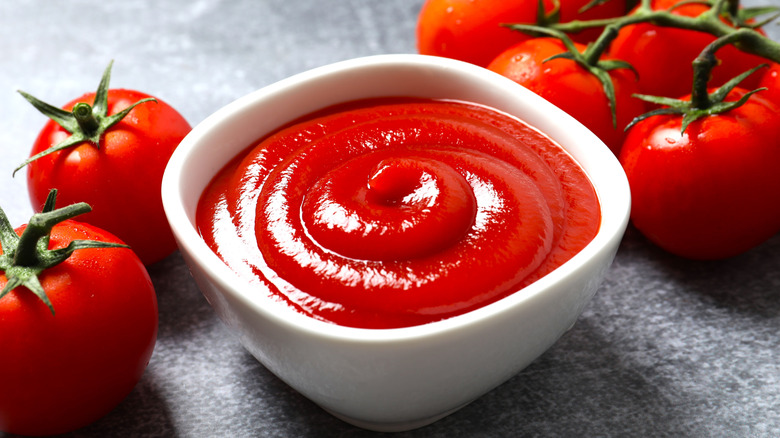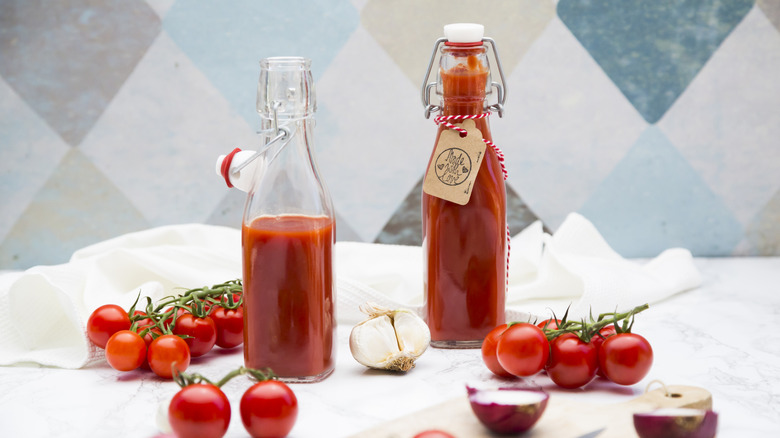The Quickest Ways To Tell If Ketchup Has Gone Bad
We may receive a commission on purchases made from links.
Whether or not you use it daily, the average American fridge is bound to have a bottle of ketchup somewhere in its door. It's a household staple and one of the most popular sauces in the world, proving necessary during breakfast and at barbecues — but its sporadic usage makes it appear to last forever. Until it's fully out and you're tapping at its lid for the last dollops, you may never consider replacing your bottle. It's important that you do, though, because ketchup should be consumed within six months after you've opened it. If you can't recall when you purchased your bottle, there are a few key signs to look out for to tell when your ketchup has gone bad.
Heinz has stated that ketchup's natural acidity technically makes it shelf-stable, but keeping it in the fridge will allow it to stay fresher and taste better for longer. However, even after storing ketchup in the refrigerator, it's important to keep an eye out for telltale signs of spoilage. The first is, perhaps, the most obvious: a sour smell. If you notice a foul odor, check for mold or discoloration, which can indicate spoiled ketchup. Lastly, if the container is bloated and puffy, this is a sign of fermentation, and you should throw it out. If you're a ketchup lover, you'll have no trouble finishing a bottle in six months, but if you're slow to finish condiments, make sure to check for the above signs; if you notice one or more of them, it's time to replace it.
Keep ketchup fresh longer
There are a few simple tips that can help you preserve your ketchup longer. The first is keeping it tightly sealed. This is important because it prevents the bottle from becoming contaminated. Once you use it, close it immediately, and put it back in the fridge, where it will stay fresh. You should also keep it away from sunlight and heat. If you're using it in cooking, keep it away from the stove or other heat sources. Foodborne microbes and bacteria grow quicker when warmth is available, so you want to prevent that from happening as much as possible.
If you notice spoiled ketchup in your fridge just before a barbecue and you can't make it to the store, your burgers don't need to be ketchup-less. Making ketchup from scratch is just as easy as throwing a bottle of Heinz into your shopping cart. Simple homemade ketchup requires just a few staple ingredients you likely have somewhere in your pantry, beginning with tomato paste, vinegar, and sugar. The remaining ingredients are spices: celery seed, garlic powder, mustard powder, onion powder, salt, and pepper. All that's required is a bit of mixing, and your guests will be impressed with your delicious, homemade ketchup.

